"North Country" Fare: The 40th-anniversary edition of Jay Stielstra's folk opera sails into The Ark
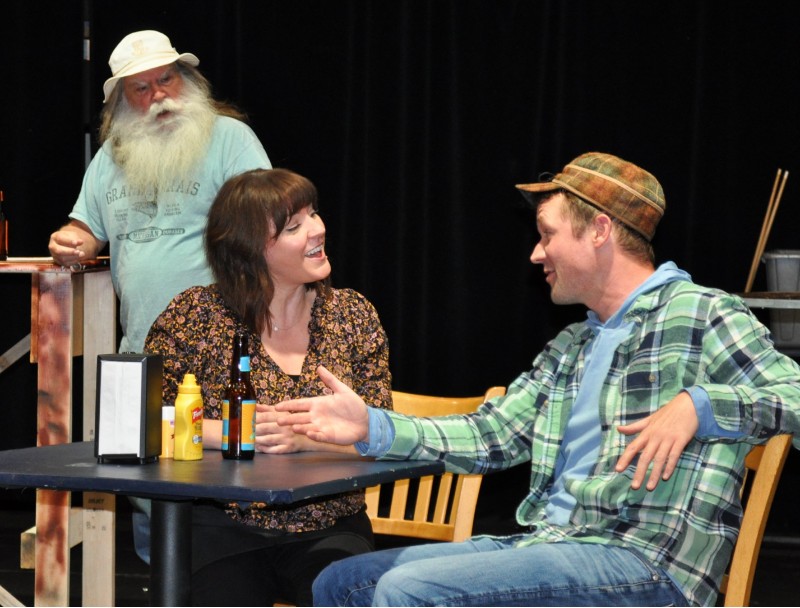
Forty years ago, Jay Stielstra was playing his songs to enthusiastic listeners around Ann Arbor, mostly at Mr. Flood’s Party, a bar that once stood on 120 West Liberty. Bouyed by the response to his tunes, the folk singer decided to write some continuity and put them together in a play, North Country Opera.
“The main thing that carries it are the songs,” Stielstra says. “I asked other musicians I knew in Ann Arbor if they wanted to be in a play, and they all said yes.”
Stielstra knew one of the founders of the Performance Network, the late David Bernstein, and brought the work to him. “David was very enthusiastic,” Stielstra says, and North Country Opera premiered in 1982 as the fledgling theater's second production.
The play was revived in 1992, 1993, and 2003 in Ann Arbor, and in 2022 it toured Northern Michigan, with the 89-year-old playwright along for the ride. North Country Opera returns to Ann Arbor for one night, October 18, at The Ark.
U-M Department of Musical Theatre's "Sophisticated Ladies" is jumping with talent
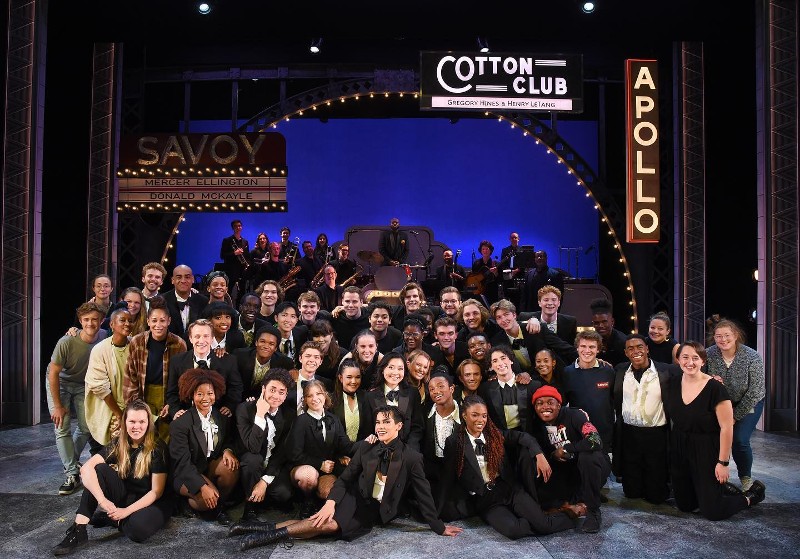
It don’t mean a thing if it ain’t got that swing!
And, man, is it swinging at the Lydia Mendelssohn Theatre during the University of Michigan Department of Musical Theatre's sizzling production of Sophisticated Ladies. The musical revue is a tribute to Edward Kennedy “Duke” Ellington's ever-enduring music and the modern dance styles that it inspired.
Guest directors/choreographers Torya Beard and Ayodele Casel are dancers who realize the immense talent of U-M’s students and provided these future stars with the support and freedom they needed to excel. They also brought in dancer Mercedes Ellington to talk about her art form and to discuss her grandfather Duke and her father, band leader Mercer Ellington. The result is a production of almost nonstop energy, from the orchestra and the large company of dancers to the varied takes by several singers on Ellington’s beloved songs.
Under the musical direction of Maurice Draughn with Tyler Driskill at the piano, the orchestra is always on stage and performs in top form.
Friday Five: Alex Blanpied, Nadim Azzam, GVMMY, Fantishow, Normal Park
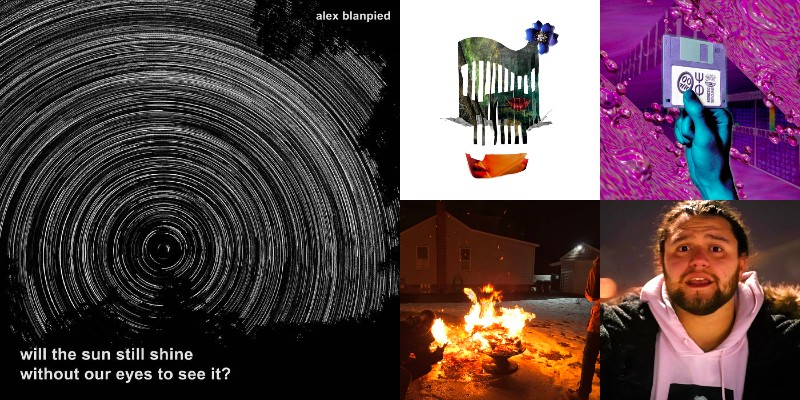
Friday Five highlights music by Washtenaw County-associated artists and labels.
This week features contemporary classical/ambient by Alex Blanpied, hip-hop folk by Nadim Azzam, hyperpop via GVMMY, early '90s-esque electronica channeled by Fantishow, and flannel-flying emo-punk from Normal Park.
Alex Blanpied, Will the Sun Still Shine Without Our Eyes to See It?
Baltimore composer Alex Blanpied, who studied at the University of Michigan, wrestles with the state of the world on his new album and more specifically where his generation fits into it as climate change, war, and demagoguery dominate the headlines. It's not an unfamiliar mindset for any young person to have—I know I had it and that was a hundred years ago. But most people in their early 20s don't have Blanpied's ability to turn those worries into compelling art that sounds simultaneously contemporary—samples and electronic elements abound—and classic(al).
"All Rise," All Week: Wynton Marsalis brings his inspiring music and passion for education to Ann Arbor
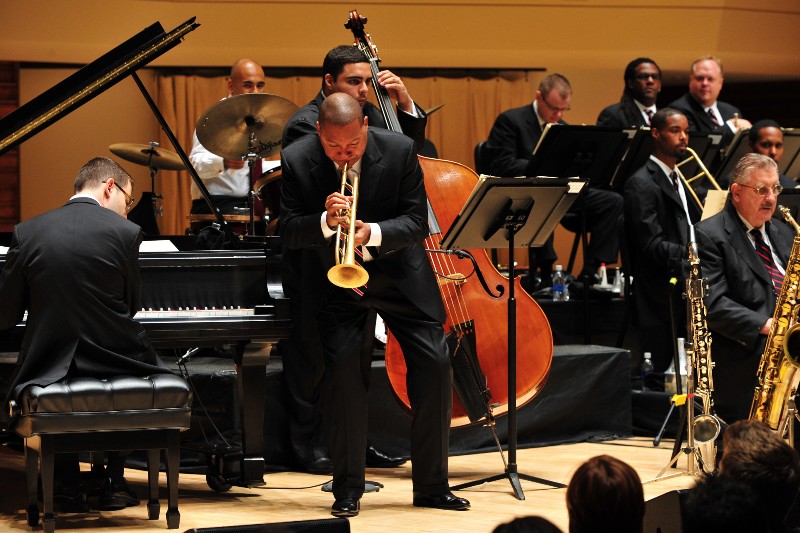
Blues and swing are at the core of every piece Wynton Marsalis composes, every note he plays on his trumpet.
He also tirelessly talks to audiences of all kinds—from concert halls to classrooms—to explain why the blues and swing center his music.
Marsalis, along with the Jazz at Lincoln Center Orchestra (JLCO), will show and tell all about the blues and swing during his October 10-16 residency in Ann Arbor courtesy of the University Musical Society (UMS), which will include concerts, talks, and educational outreach.
While Marsalis and Co. are yearly visitors to Ann Arbor, their appearance is happening a bit earlier in the calendar year than usual, so the JLCO big-band performance on October 16 at Hill Auditorium likely won't include the holiday repertoire that has helped define their previous concerts here.
But that closing concert won't necessarily even be the musical highlight of Marsalis' residency.
Featuring Iggy Pop: A compilation of James Osterberg Jr.'s duets & collaborations
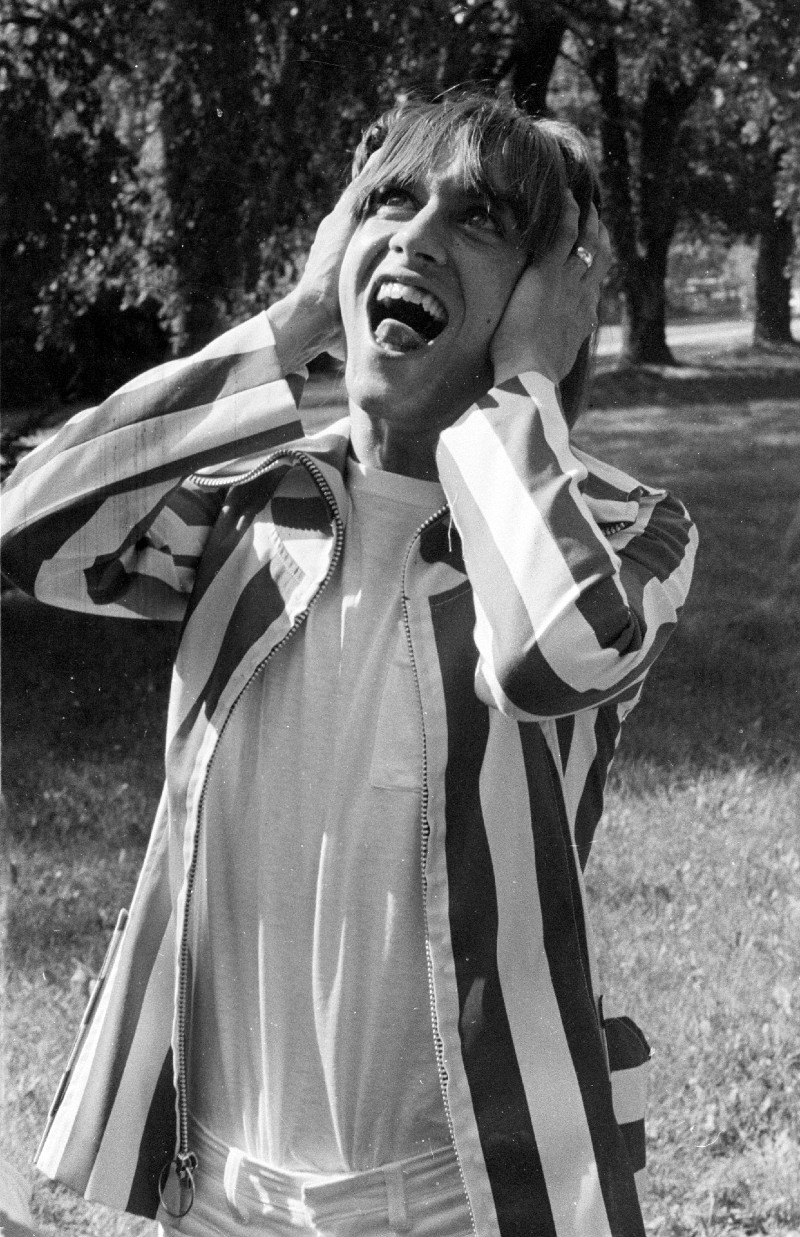
This story was originally published on September 16, 2021. We've updated it with even more Iggy Pop collaborations.
Iggy Pop is known for his outrageous stage antics, groundbreaking music, and massive influence on punk rock.
The Ypsi-Arbor native who was born James Newell Osterberg Jr. should also be known as a man who doesn't say no.
Ever.
Need someone to croon on your single? Tell Iggy the time and place and if he needs to wear a shirt.
Need a deep voice to sing-speak words over your music? Mr. Pop will suddenly appear in the studio, tap you on the shoulder, and say, "May I?"
Iggy even performed "Silent Night" with William Shatner—the. man never. says. nah.
I started thinking about Pop's predilection for partnerships after his latest collaboration hit my inbox.
Hammond B3 player Dr. Lonnie Smith is a master of soul jazz, which is not the first genre you would associate with Pop. Probably not even the last genre. But "Move Your Hand" is a single from Smith's latest Blue Note album, Breathe, and it features Pop riding the funky groove by sing-talking through a simple set of lyrics.
This song follows two other 2021 Pop collaborations: He provided vocals on an alternate version of "I Wanna Be Your Slave" by Italian rock band Måneskin and repeats one word on the garage-rock single "I, Moron" by English duo The Lovely Eggs. (Iggy: "You need me to say 'moron' in 16 different ways? I got you.")
And as I was writing the above paragraphs, I discovered yet another new collaborative Pop effort came out: "European Son" with Matt Sweeney as featured on the new album I’ll Be Your Mirror: A Tribute to the Velvet Underground & Nico.
No is not a word Ig knows.
Aside from his work with fellow Ann Arborites the Ashton brothers in The Stooges, Pop's most famous collaboration was with David Bowie, who produced his 1977 albums The Idiot and Lust for Life. Pop also had a big hit in 1990 with "Candy" featuring The B-52s' Kate Pierson from his album Brick by Brick.
In 1989, he joined the charity-single bandwagon many years after that was a thing by singing on "Spirit of the Forest," with the likes of Brian Wilson, Ringo Starr, Joni Mitchell, and ... Olivia Newton-John, among many others ... to benefit the Earth Love Fund foundation. Then followed that up by participating in a truly awful, Lenny Kravitz-produced, superstar-soaked cover of "Give Peace a Chance" in 1991. (Somehow never single achieved the same cultural saturation as "We Are the World" and "Do They Know It's Christmas?")
But there are numerous other collaborations in Pop's career that feature him working with lesser-known or more esoteric artists, some of whom just sample his voice from interviews. I'm sure Iggy doesn't mind. He says yes to everything.
Below you'll find a selection of those recordings—oui, there are a lot of tunes in French—starting with the most recent.
Chekhov's "Three Sisters" gets a risqué update in U-M’s "Moscow Moscow Moscow Moscow Moscow Moscow"
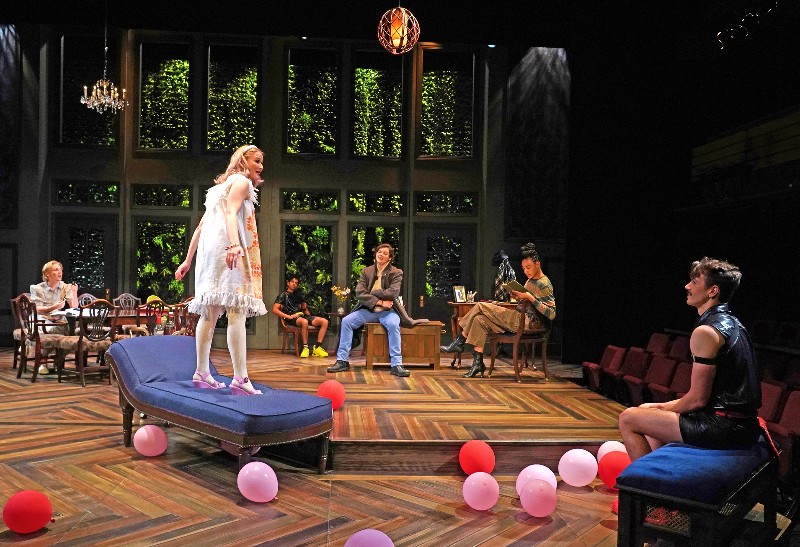
Playwright Halley Feiffer had the clever idea of taking Anton Chekhov’s play Three Sisters and kicking it into the 21st century.
It’s one of those creations that begins with the question, “What if?” What if Chekhov were writing his play today using raw contemporary language with lots of profanity, slang, catchphrases, snarky attitudes, and even a few funny jokes backed by some hot early 2000s music?
The result is Moscow Moscow Moscow Moscow Moscow Moscow being presented at the University of Michigan’s Arthur Miller Theatre. Director Ryan Dobrin takes the idea a bit further in his production at the university by setting Chekhov’s characters “in a more diverse context,” according to a program note. The result is a comic mashup that draws, again according to the program notes, on the affectations of Paris Hilton and the Kardashians as well as on gender-identity issues.
The playbill also comes with a warning that the play may be “upsetting, offensive, or triggering for some audience members” and advises caution. Some of those who might respond that way are fans of Chekhov who might not appreciate what Feiffer has done to his play.
Friday Five: Mista Midwest, Latitude 49, A Good Sign, Dani Darling, Dimitra
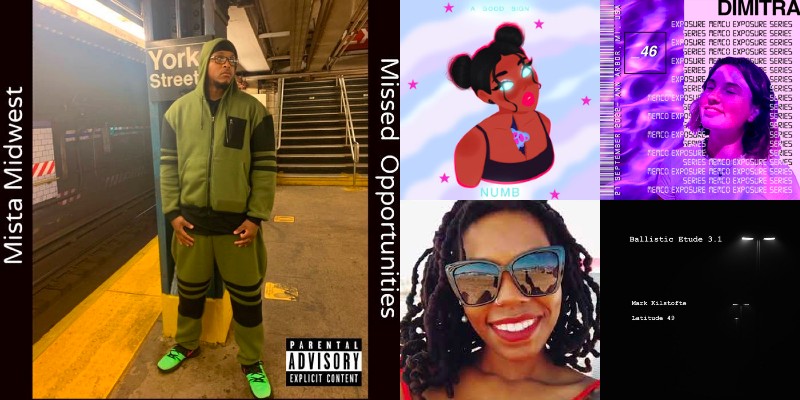
Friday Five highlights music by Washtenaw County-associated artists and labels.
This week features hip-hop from Mista Midwest, contemporary composition by Latitude 49, electro-pop by A Good Sign, indie-R&B by Dani Darling, and the latest MEMCO Exposure mix by Dimitra.
Frances Kai-Hwa Wang reaches for poetry “when argument fails, when there can be no objectivity, when things have become personal”

Frances Kai-Hwa Wang’s new book, You Cannot Resist Me When My Hair Is in Braids, begins with desire and dreams and concludes with anger, love, and home. In the pages in between, the expansive lyric essays travel broadly from Kathmandu, which is “the ancient city of my youth while I am disappearing into summer, fire, and sea,” to the basement of the Detroit Institute of Arts where “we discover the museum’s stash of old film reels.” The essays consider how to have one’s own dreams, embrace identity, experience violence against identity, and engage with family (not to mention ex-family members).
Leaving a place and leaving a marriage become both a backdrop and an integral part of the essays. In “Texting Nostalgic for Kathmandu,” Wang writes:
Tasty Times: Mercury Salad Explores Delectable Life Experiences on “Volume 3” EP
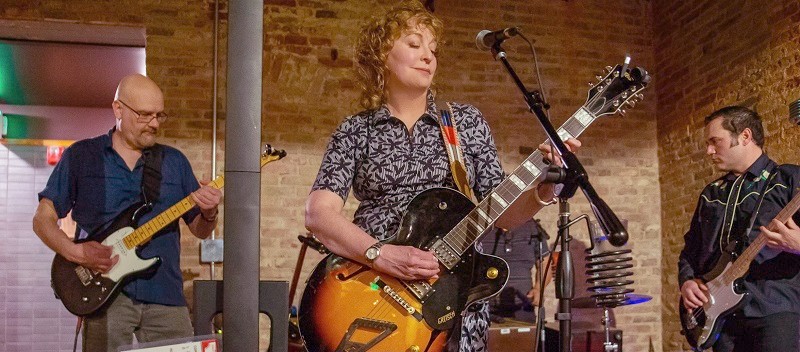
Brooke Ratliff says she’s no good at writing traditional love songs because “they’re either really mushy, or they’re really sad”—so she doesn’t even try on Volume 3, Mercury Salad’s latest EP.
Instead, the Ypsilanti folk-rock trio of Ratliff (vocals, guitar, percussion), Kurt Bonnell (guitar, harmonica), and Kyle Kipp (bass) explores the uncertainties of a promising relationship on “Best Guess,” the EP’s spirited opener.
“To me, this song could go either way. It could be that it’s unexpected, or it could be that the person is being overly optimistic,” said Ratliff with a laugh. “I wanted to do something sweet-natured and slightly romantic, but I couldn’t go all the way there. That’s why it’s my ‘Best Guess’ this is gonna work out great.”
Business Casual: Crossword Smiles Fashions Classic and Experimental Sounds on “Pressed & Ironed” Album
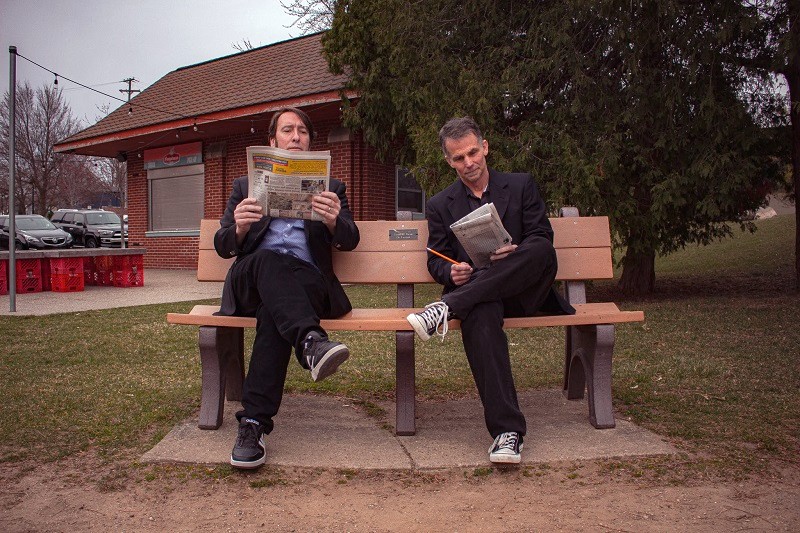
For their debut album, Crossword Smiles brings a “business-casual” sensibility to the indie-pop world.
The Grand Blanc-Dexter duo of Tom Curless (vocals, guitars, drums, keys) and Chip Saam (vocals, bass, guitars) strikes an optimal balance between classic pop-rock song structures and experimental college-rock textures on Pressed & Ironed.
“We want to show the duality of our lives,” Curless said. “We work day jobs, and then we put the pressed shirts away and put on our Converse [sneakers] and play rock ‘n’ roll.”
With button-up shirts cast aside and well-worn sneakers in place, Crossword Smiles fashions 10 artful, melodic tracks on Pressed & Ironed that remove the wrinkles of the past and provide a smooth outlook for the future.
“Tom and I both take our lyrics somewhat seriously, and I don’t think either of us writes something just to write something because it sounds good,” Saam said. “We both put some thought and work into our lyrics, and it’s awesome when people really pay attention, especially if it makes some kind of impact.”


































